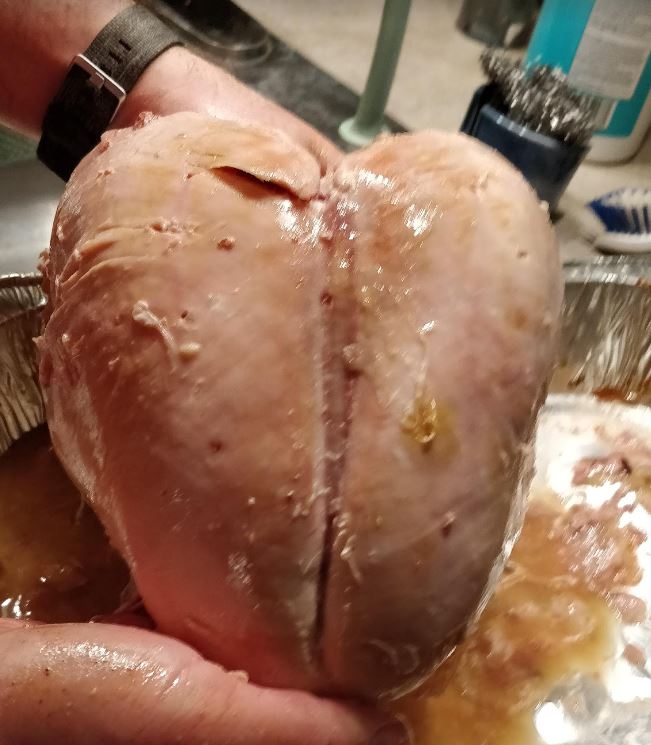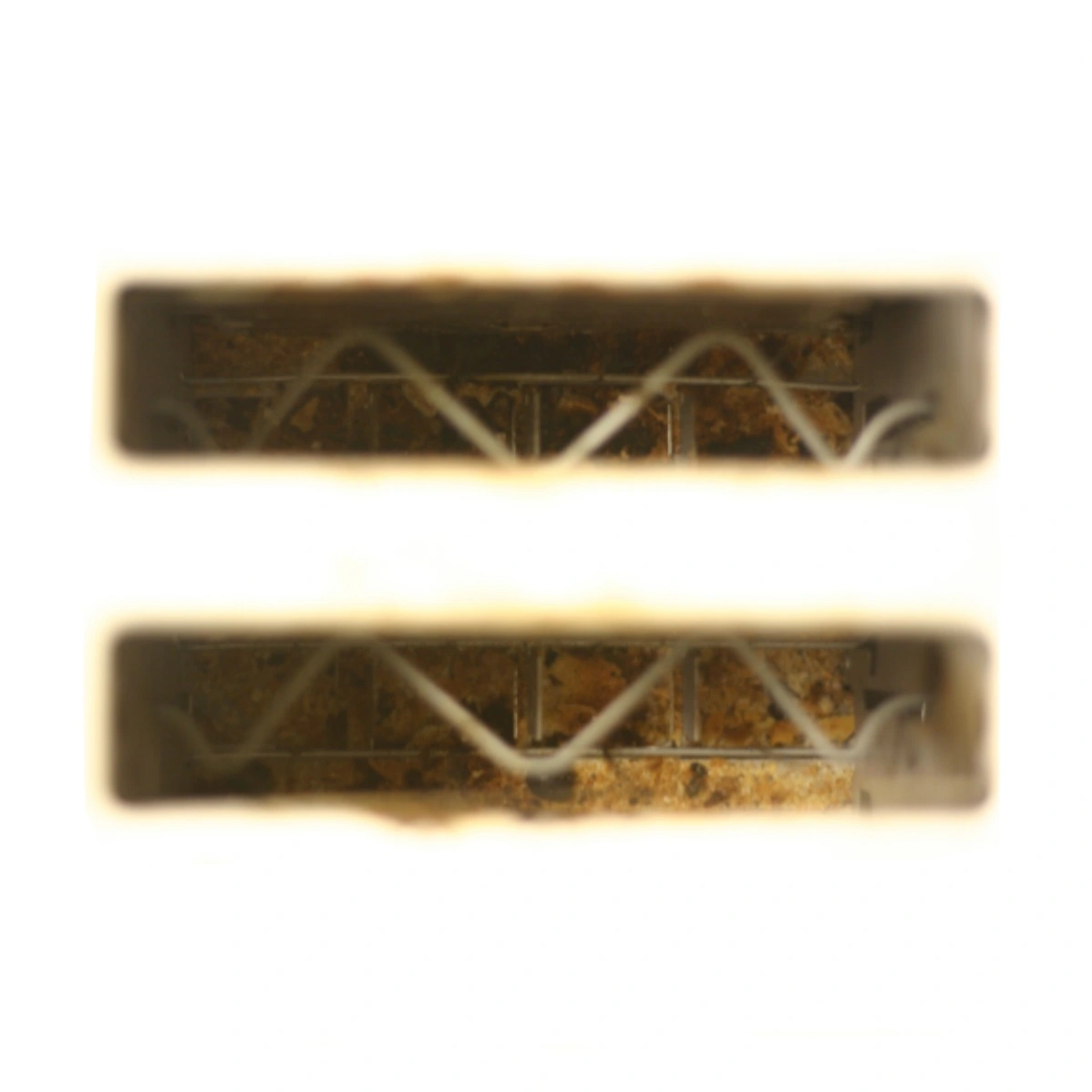- cross-posted to:
- coolguides@lemmy.ca
- cross-posted to:
- coolguides@lemmy.ca
Edit:
This is not intended as “how to grow all your food you ever need at home”.
It merely provides the vegetables.
You still have to get your grains (and therefore the majority of your calories) from somewhere else.
geteilt von: https://lemmy.ca/post/22193783
That’s a big 0.1 acre lot.
Or it’s a 20 x 20 house.
Comes out to 4350 sq ft, vs 40,000 for an acre. So, a tiny bit more than 0.1 acres, but not quite 0.11.
An acre is 43560 and a tenth of that is 4356.
Sigh, imperial measurements. I forgot it was 208x208’, I had calculated it at 200x200’.
Seriously, imperial measurements are just awful.
At least they teach Americans how to do proper conversions.
If you don’t fight it and accept that imperial is designed with base 12 and not base 10, everything makes more sense. Measurements across all of imperial are to be cut into 12, 6, 4, 3, or 2.
Sometime base 12 works really nicely, especially outside of a lab, when you want to be able to have as many options for division easily as possible.
Decimals work for me.
I get that people like to be stubborn about this but there are very real and intuitive reasons that decimals don’t make sense everywhere. Consider how intuitive telling time using “kiloseconds” and decimals might be.
The right tool needs to be used for the right job. I am a scientist. In the lab, metric is fantastic as it allows for precision recording and I don’t care about intuition.
It’s not a point of pride to use one system over another. For example, in America we use both systems in the right contexts. I am happily able to fluidly switch between what’s most appropriate for the situation. I get that context/code switching is generally difficult but I think it’s an overall value add.
Two room and a bathrood house, and shed.Nor garage, or drive way.
Eyeballing looks like the house couldn’t be more than 18x30 feet, or ~540 sq ft. Probably less in reality. Tiny home territory. Smaller than most single wide trailer homes. The doors as drawn must be for hobbits. Fun picture just the same. I love the urban homestead explosion and hope it never stops.
It appears big because it’s well used. Also, the house is small-sized. Might depend on your family circumstances.
deleted by creator
Shit like this looks cool, but most people don’t have even a tenth of the time needed to maintain it…
It’s common in India to provide a quarter and salary to rural people for help with maintaining such a place. They usually have experience with farming and happy to live without worrying about wages, food and a roof.
In the US, that’s called “rich”, normal people can’t afford servants here.
Gotta be rich if you own land in acres
Might as well link to the actual source which has a lot of great content.
The Backyard Homestead: Produce all the food you need on just a quarter acre!
thanks!
Good linking. The book says it’s for a quarter acre, not a tenth. This was on reddit the other day (and it’s credited as such). Exact same wording and everything.
That is not enough food to sustain a person, but a great way to cut down on grocery needs!
Is it efficient land use, though?
Keep in mind, we have to be able to feed 10 billion people. Homesteads like this are of course better than just plain grass, but compared to a farm, the output per area is probably really low. So there’s still land being “wasted”.
You can’t compare this sort of thing to actual farming though, because that’s not the point of it at all. The point is supplementing from other sources like farms, reducing the need for intensive agriculture, and potentially (with enough people shifting to home gardening) reduce the size of farms needed for veg growing, freeing that space for other things.
It doesn’t have to be as efficient as a big farm to be good for the people consuming it as well as the environment (grass is worthless and veg have to be shipped if not grown locally)
We can’t let perfect be the enemy of good.
Homesteads like this are of course better than just plain grass, but compared to a farm, the output per area is probably really low.
I would’ve thought that as well, but, at least according to some studies referenced by the Edinicity project, small urban farming apparently results in significantly higher yields compared to industrial farming. If the figures referenced are correct, then it would seem small urban farming could be quite viable as a source of food for significant amounts of people.
I think the idea is that is an alternative to lawns, patios, driveways etc on already residential land, not a replacement for crops on already agricultural land. In fact, if all farmland was replaced with plots like this I don’t think there would be enough people on the planet to live on them!
In exchange, the vegetables are really fresh.
just buy a ton of land and farm equipment forehead
No.
You might be able to survive if you grow just potatoes in those 8 beds and feed the 6 laying hens on weeds and scraps from the other plants.
You can also convert 3, the “tea herbs,” into more potato beds.
Potatoes are great from an energy input position, but if you were doing this without potatoes and your neighbor was doing just potatoes, I think that might be enough for both.
No, you cannot source all of your food that way. Only the vegetables. You still habe to get grains from a machinally-farmed farm. It says so in the description (4).
Im only referring to raw human survivability.
Whether this amount of growing space could produce enough calories per year to keep 1 human at “barely alive or better” caloric input.
In my estimate, you would need to devote most of the land to potatoes, and rely on eggs, rabbit meat and likely some wild foraging for the rest. It probably is feasible if you do the above.
Literally explains that this is insufficient.
Don’t let perfect be the enemy of the good.
Don’t let half measures be the enemy of the bare minimum.
Then we should be promoting good instead of unrealistic perfect.
I feel like the beekeeping is wasted effort if you’re going for self-sufficience.
It’d be like including a space for a liquor still. Super neat in concept, enormous effort in practice. Hell I’d be more in favor of the still over the beehives honestly, way more utility.
Don’t forget that wax is super useful in a self-sufficient setup for prolonging the life of leather and wooden items. I’ve even used to protect my bike chain!
If I’m already getting the leather and wood from a neighbor, I reckon I’ll leave the bees to someone else as well! hahah
That looks like a 1940’s WII landscaping plan. If you really want to invest in homesteading, get out of the 1940’s design.
Invest in a high tunnel instead. The larger the better.
It will out-produce the little raised beds by a factor of 3x to 10x depending on the crop.
At first I thought that you were talking about growing vertically, but you probably meant something like a green house? Beyond extending the growing season, what else do they do to increase yeilds?
Heat is what everyone thinks of, however that’s only part of the equation.
More importantly they maintain higher air moisture level around the leaves close to the saturation point.
This allows the plants to keep their stomatas open longer. This keeps the photosynthetic pathways operating for more time during the day. More time = more carbohydrate = more production.
They are also usually watered by drip irrigation as well. Providing he right amount of water, not too much or too little, greatly increases a plants yield.
A high tunnel is a unheated/cooled greenhouse/nethouse that is popular in every country not stuck in the dark ages with their agriculture. They come in many sizes. For example 100m x 20m ones popular in the middle east and Australia. In southern Spain they built ones that cover 20ha or more. A few in Poland were my favorite. They used split pine rails to build them.
Thanks for the reply. I can see this being a great way to go for a dedicated farm, which this post is proporting to do, but I am not sure I would want a high tunnel in my yard. I am on the wild-yard side of things and have wildflowers planted along one edge of my property, a milkweed garden, etc. I like to be able to see things growing and am not sure how I would feel about the visual block. I guess you could make one with more long-term transparent sides, but that would cost more $$.
As it is, we often have too large of yeilds when our four 4x8 raised beds really get going. Our issue isn’t yeilds, it’s the narrow width of peek yeild along with a combination of what we grow (not shelf stable) and storage systems (the whole pick early, store so it won’t ripen, and ripen on demand system).
Maybe a tunnel could actually help with this?
AFAIK it not just speeds up plant growth, but also extends vegetation period. It means for example that you can plant/harvest from March-October, instead of May-August.
Depending on the location, they can add 3-4 more months of a growing window. So double cropping or staggered plantings for a longer harvest window becomes viable.
I bet it would keep the deer from eating my tomatoes, too
There are loads of fantastic personal benefits to living like this, like having choice of fruit and vegetables that aren’t possible to find in supermarkets, no plastic residues from packaging on your food (and no plastic waste to dispose of), getting exercise, fresh air and vitamin D from working in the garden, less carrying groceries around, less need for refrigeration (many veg goes straight from garden to kitchen), health benefits of contact with soil and seasonal diet just to list the first ones that come to mind. Also if your children have contact with animals (even hair and dust left behind by animals) they are less likely to developed allergies. And you’re also not helping already wealthy shareholders of food corporations to further out-compete working class people in the market.
It’s an absolute winner.
Thanks, I thought the same thing.
Especially the “getting some physical exercise, and reconnecting with the soil” seem interesting upsides to me. We would all need some more of that in today’s time it seems.
I grew Chard one Summer during the pandemic. I had some old garden magazine with a similar sketch, but focusing on the vegetable beds. They described how incredibly space efficient chard is, and how it should be grown in any garden centered on self-sufficiency.
So anyways, I’m all for community gardening now and can not look at another leaf of chard for the next decade. That stuff really knocks the dream of self-sufficiency out of any gardener. It’s ridiculous how much Chard just 2 rows of plants can produce with minimal time spend tending to them, but don’t believe anyone who says its leaves tastes like spinach and the stems like asparagus. It tastes like green mush and is best chucked in the freezer to die a slow death, maybe to be micro-dosed into some smoothie.
I should have instead started with Chickens, maybe they would have liked it.
Finally, a fellow chard hater.
I like to chop it up, fry it with onions, and put it in burritos. Breakfast burritos especially with egg, bacon or sausage, and cheese. It can also substitute for turnip or collard greens in a recipe if you’re looking for a place to eat it. Since its more of a bitter plant, you’ll want to use it much differently than spinach (whoever told you it tastes like that deserves a stern talking to)
lol
This is a nice sentiment, but not really to scale unless that’s a kids play house.
If this is 1/10 of an acre, then TIL one acre is really big
1 acre ~ 4000 m²
You need approx. 1200 m² to feed a person, so 1 acre was approx. a small-sized family farm back in the day.
Living on .66 acres, this seems wholly unachievable for most people. In a perfect world, it’s neat, but just not very realistic in most cases.
For those civilized in the ISO metric, 87’ x 50’ would be around 26.1m x 15m = 391.5m²
Gonna need this in freedom units.
That’s approximately 391 square M16A1s, as each is roughly 99cm long
That house seems to be ~450 sq ft, that seem right?
Nevermind i misunderstood.
Yes, that house seems to be 500 sq ft
deleted by creator
1 acre = 43,560 sq ft
43,560 sq ft / 10 = 4356 sq ft
8 ft x 4 ft x 8 = 256 sq ft if you bunch all the beds up together
Honestly it’s entire lot size is slightly larger than an average USA home family floorplan, but you’re not gonna have any privacy and you’re not going to feed the people more than once in a blue moon on that amount of homegrown.
And you want to live with BEES in that amount of space? Yeah, have fun.
Haha, check out this guy, afraid of bees.











